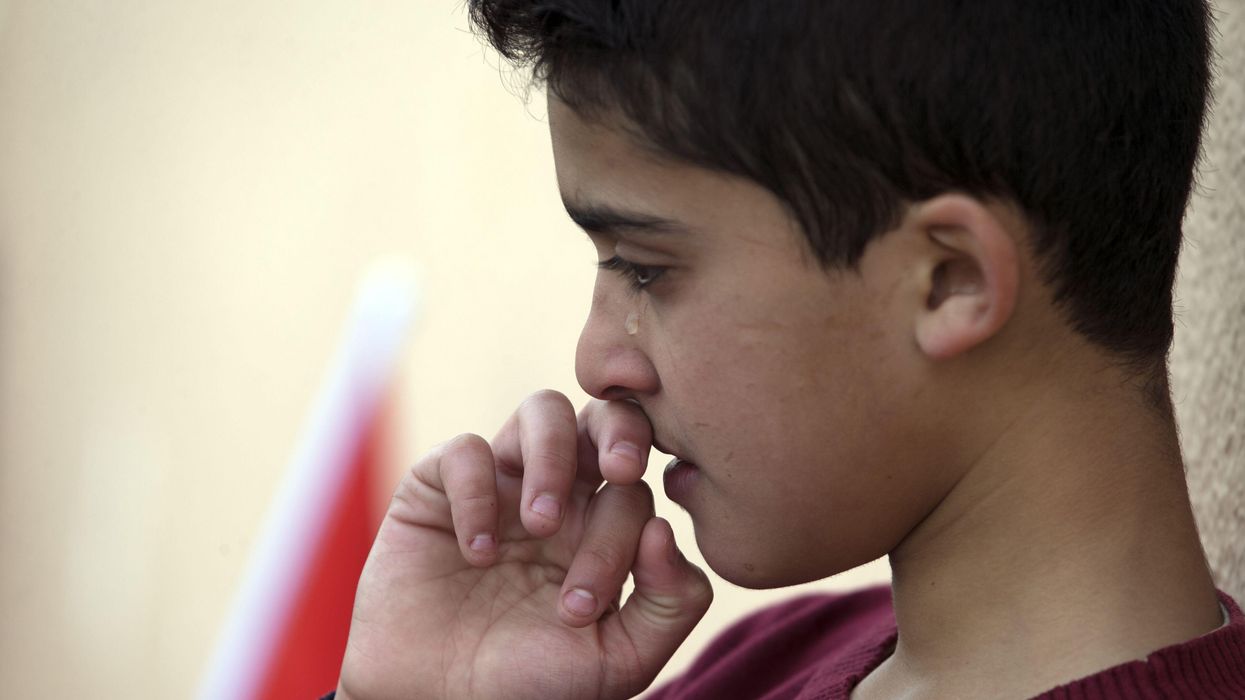
Photo by JAAFAR ASHTIYEH/AFP via Getty Images

All children ages 8 years and up should be screened for anxiety, the New York Times reported Tuesday, citing a briefing from the U.S. Preventative Services Task Force.
The task force, according to the report, is composed of a "panel of volunteer experts" who have been "appointed by a federal government agency to make recommendations to health care providers about clinical preventative care."
On Tuesday, the task force released a set of draft guidelines recommending that all children over the age of 8 be screened for anxiety amid what the panel said is a worsening state of mental health among U.S. children.
Health providers on the committee said that screening children this young is of utmost importance.
Dr. Stephen P. H. Whiteside, child psychologist and director of the Pediatric Anxiety Disorders Clinic at the Mayo Clinic, told the Times, "Most kids in need of mental health care don’t get it" and instead exhibit what many adults perceive to be garden-variety behavioral issues and those children "slip through the cracks."
“It’s critical to be able to intervene before a life is disrupted,” Dr. Martha Kubik, a task force member and professor in the School of Nursing at George Mason University, told the outlet.
She told ABC News of the importance of early intervention.
"To address the critical need for supporting the mental health of children and adolescents in primary care, the Task Force looked at the evidence on screening for anxiety, depression, and suicide risk," Kubik said in a statement. "Fortunately, we found that screening older children for anxiety and depression is effective in identifying these conditions so children and teens can be connected to the support they need."
Dr. Carol Weitzman, co-director of the Autism Spectrum Center at Boston Children’s Hospital and a spokeswoman for the American Academy of Pediatrics — who is not on the task force — added, “We need to shine the light brightly on the mental health needs of children, youth and adolescents in this country, and we need to be advocating for better access to mental health care.”
The Times report also pointed to the Centers for Disease Control and Prevention, which currently states that more than 7% of American children ages 3 to 17 have been diagnosed with anxiety, but as children remain undiagnosed — or under-diagnosed — the actual number of afflicted children could be much higher.
Data from the Centers for Disease Control and Prevention released earlier this month found that 37% of U.S. children have reported experiencing deteriorating mental health since the pandemic’s inception in March 2020.
The Times report noted that caregivers ought to be on the lookout for signs indicating potential anxiety disorder. Some of those signs include (but are not limited to):